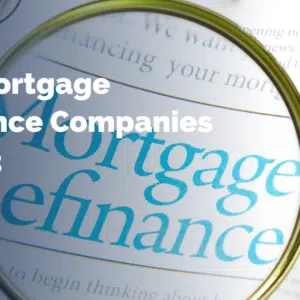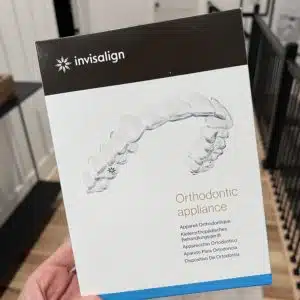One day, all my 3 boys are probably going to be attending college.

You know what that means: $Cha-Ching.
My wife and I have already decided that we don’t plan to pay 100% of their tuition, but we will try to help them out so long as they are working towards getting a degree.
A recent study by Fidelity reveals that others have similar aspirations in that parents plan to pay 62% of their child’s college costs, but they’re only on track to pay 1/3 of that cost.
Knowing that college isn’t getting any cheaper, we started saving for our first son basically immediately after he was born, and we’ve followed suit with each son thereafter.
It’s always nice to have choices like saving for your kids college, but many parents get confused about what’s best for them.
Having a plethora of choices can be overwhelming.
Most parents have too many other issues to deal with that trying to decide the best college savings plan is shoved further down the priority list.
Don’t worry, busy parents….this post (and video) is for you! 🙂
For somebody who feels overwhelmed, here’s a quick look at the four ways to save money to pay your kids tuition checks.
Table of Contents
1. 529 College Savings Plan
The 529 College Savings Plan is one of the more popular ways to save for college. Fidelity reported that 33% of Americans are currently using the 529 plan, an increase of 18% from five years ago. For me, it’s the way that I save for all my sons’ college.
If you happen to be a resident of my state, you can read a post I wrote on the Illinois 529 College Savings Plan Options. (Yes, the “S” is silent). If not, double-check your own state to see what the options are.
With a 529 plan, you can save for anyone — your child or grandchild, a niece or nephew, a friend, or even yourself. Here are some of the basics of the 529 College Savings Plan:
- You can contribute up to $17,000 ($34,000 for married couples) annually without gift-tax consequences. Under a special election, you can invest up to $85,000 ($170,000 for married couples) at one time by accelerating five years’ worth of investments.
- You can contribute until your account value reaches between $235,000 and $550,000. (I don’t think I’ll have a problem with this).
- Earnings can grow tax-free (Just like the Roth IRA).
- Withdrawals for qualified higher education expenses are free from federal tax. Withdrawals for non-qualified expenses are subject to ordinary federal income tax, plus a 10% penalty on the earnings.
- There are no income limits. You can contribute no matter how much you earn.
- You maintain control of the assets.
What we love about the 529 plan is that any relative can contribute to the plan. Instead of having them get our sons more toys that they don’t need, we’ll ask them to contribute to their 529 plan. That’s definitely the gift that keeps on getting.
2. UGMA/UTMA Custodial Accounts
UGMA/UTMA custodial accounts let you take advantage of your child’s lower tax rate while saving for your child’s education. Personally, I’m not the biggest fan of these because of the control issue. I know how I was at 18, and I don’t expect my kids to be any more mature than I was with being able to manage a large sum of money. I’ll be happy if they prove me wrong.
- There are no contribution limits.
- Beware of the Kiddie Tax. For children under age 19 and full-time students under age 24 whose earned income is less than one-half of their support, the first $1,250 of earnings is tax-free. Earnings above $2,500 are taxed at the parents’ rate.
- There are no income limits. You can contribute no matter how much you earn.
- The beneficiary gains control of the assets at the age of majority, which is age 18 or 21 in most states.
Where I have used a custodial account to buy my kids stock. I bought one share of Nike and Under Armour for my first son so he would have a stock to track when he gets older. I plan to follow suit with both of my other boys.
3. Your Own Investment Account
Saving for your child’s education through your own investment account allows you maximum control of the assets. This would be setting a joint account (or individual) with a brokerage firm and investing in mutual funds or individual stocks.
While you definitely have more control of the money, you’ll be hit with taxes each year.
- There are no contribution limits.
- Earnings are taxed to the owner.
- There are no income limits. You can contribute no matter how much you earn.
- You maintain control of the assets and decide when withdrawals will be made.
If you want to go this route but have no idea where to get started, head over to my best online brokerage accounts article to figure out which investment services is right for you.
4. Your Roth IRA
I know what you’re thinking: “A Roth IRA is for retirement, not college savings.” Yes, that’s true. I’ve encountered a few times where people are extremely enthusiastic about saving for the kids’ college and, in doing so, put their own retirement on the back burner.
By utilizing the Roth IRA, you ensure that you are saving for retirement, and if your kid does go to school, you can pull out your contributions with no problem and just pay the tax on any gains.
- Can only contribute $6,500 per year ($7,500 if over the age of 50)
- There are income limits, better known as Roth IRA phaseout limits
- You are in control of the assets and decide when to withdraw the money.
I am a BIG believer in the Roth IRA since there are no additional taxes on the money once you retire. If you haven’t opened a Roth before, go over to my article on the Best Places to Open a Roth IRA to get in-depth descriptions of all your best options.
I hope that gets you in the right direction in saving for college.
Bottom Line – College Savings Strategies (My Choice Included)
Saving for your child’s college education can be daunting, but there are several strategies available. The 529 College Savings Plan offers tax-free growth and versatile contribution options, with an added benefit that relatives can also contribute.
UGMA/UTMA custodial accounts tap into the child’s lower tax rate but transfer control of assets when they reach adulthood.
Personal investment accounts offer flexibility and control, albeit with annual taxes.
Lastly, while a Roth IRA is primarily for retirement, it can be a dual-purpose tool for college expenses. Prioritizing savings and exploring these options can ensure a brighter future for your child’s education.








What happens if your child receives a scholarship? It is my understanding that this would make the 10% penalty for taking out the money go away. Obviously, you would still have to pay taxes on gains.
Thanks for your response.
@Jack That is correct. You’ll be able to take out the scholarship amount without having to pay the penalty.
Jeff one of my grandsons got two Associate degrees from Rend Lake then was not happy with the choices at SIU C or SIU E. He then found that Portland State in Oregon had what he wanted but didn’t have the money he needed, to make a long story short he ended up joining the Oregon National Guard as they told him they would pay for his two remaining years to get his Bachalor degree so he signed up with them. After he served his six months of active duty they refused to pay for the rest of his education and he is now stuck with a huge stundent loan, the Army National Guard cliam the papers were not filled out correctly and have refused to pay anything. I help when I can or if he gets in a bind but it ticks me off as he is still in the National Guard and has been told he is deployable but it is he and I that is paying off a student loan. I am upset with this but I will always support our troops no matter what but I can’t help but to feel the have done my grandson wrong.
Hi Jeff,
Love both yours & your wife’s blog!!
Do you have a seperate account set up for all 3?
I set 1 up for my daughter when she was born, but haven’t done a seperate one for my son. I’ve been justifying it by knowing I can use it for either. Just wondering what others are doing?
@Sherry We do have 3 separate accounts for all 3 boys. You don’t have to do it that way but for us it’s easier to keep track.
Another thing to consider for 529 versus UGMA is that the UGMA is considered to be the “student’s.” Often for college financial aid (at least when I attended < 5 years ago), student assets were considered more "fair game" than parent assets, so having money in a 529 would increase the student's perceived need over UGMA (which meant more financial assistance from the school).
I don’t have kids yet so I’m not overly concerned about which savings vehicle to use just yet, but I am increasingly skeptical of the value of the four year degree. I wonder if 529’s can be used for other schooling/training alternatives.
Great post! I also have 3 boys and my husband and I recently did a 529 savings plan for each of them.
What about Coverdell ESAs?
@ Jon The have changed the rules on Coverdell ESA’s so much that they are very restrictive and you can tell that IRS is making the 529 the more attractive choice between the two.
Hey Jeff!
Great site! Lots of great info and it’s easy to follow and understand. Awesome!
Quick question – what happens if your kid decides to not go to college. What if they decide to go the entrepreneurial route instead. What happens to the money in your 529?
What can you do with the money at this point, and if you withdraw it – what kind of tax hit will you be stuck with?
@SimpleRyan Great question! Remember, the money you put in is after-tax so you have access to that at any time. It’s the interest and earnings that must stay there until your kid goes to college and you need to cash it out.
If your kid decides to not go to college you can always transfer it to another child. If that’s not an option, it would be similar to cashing out a retirement account in that you would pay tax and penalty on any of the gains you have.
I am in the education industry and have come across a couple companies that are helping to make college more affordable. I have no affiliation with these companies but just think their products are worth a look.
www.unow.com
– owns two colleges and you pay per month
– check out his video on his home page
http://www.straighterline.com/
– looks like a solid way to take some of the pre req classes and keep your costs down
Good thought. On the other hand, I say if you can do both, then go for it! My Dad is someone I consider a responsible financial decision maker. As soon as I was born, he started saving for my college via bonds. At the same time, he also poured more than most into his retirement so he certainy didnt neglect that aspect. As a result, he was able to retire at age 50 with an excellent retirement (and benefits) and I was able to attend a junior college, university, and grad school with out ever having to take out a student loan. Not only am I grateful for his wise decion making, but not having a student loan to worry about when I married my husband (who does have one) took a lot of pressure off. I know if I had to deal with paying off 2 student loans I wouldnt be able to sleep at night!
Great post… and right on the money (no pun intended). You are really honing your skills as a blogger too. Keep up the great $$ work. Thanks.
Excellent post. Investments should balance all the needs a family has. College is an important part, but there’s also retirement, a rainy day fund, home ownership, and funds for vacations or other large purchases. Best to create a comprehensive plan that balances your various needs with what you can save.
I fully intend on helping my girls out a ltitle bit, but when it comes down to it, it’s their education, so they’ll need to pay for it. Again, I want to help a little bit, but figuring out the finances of collge is another part of college education, as far as I see it.
The prices of tuition at the universities is getting crazy! By the time my kids are in college, if tuition keeps going up I fear that I won’t have enough to help them like I’d like too. I don’t put every one of my last pennies into their college savings. I try to spread the savings in case of any other emergencies. I’ll admit that I haven’t been saving for retirement. I just have an emergency fund, which thank the lord, I haven’t felt the need to use yet. Thanks for the eye-opener. That’s one more thing I have to keep in mind, no matter how far retirement feels.